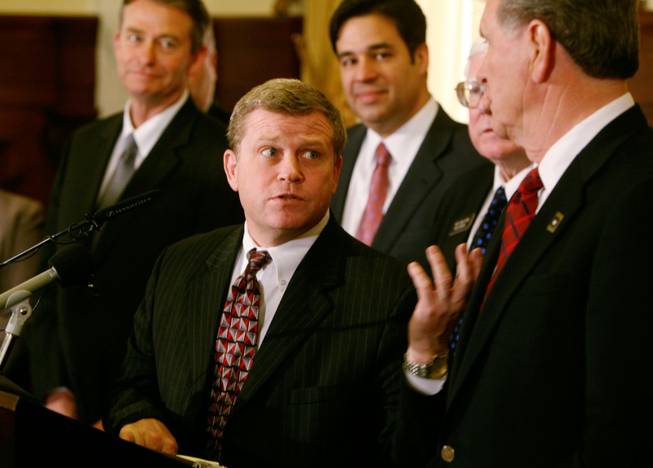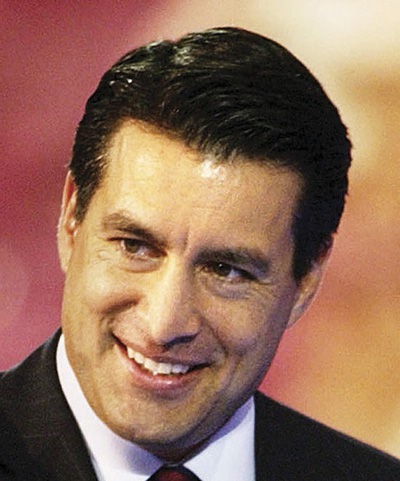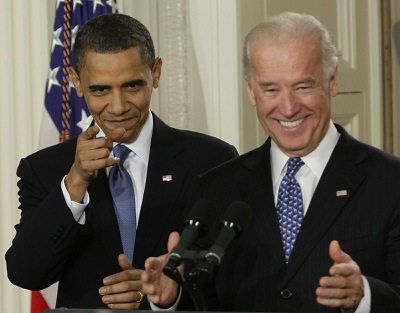
Joe Jaszewski / AP
Idaho Attorney General Lawrence Wasden, center, gives a news conference in Boise, Idaho, on Tuesday on the state’s decision to sue the federal government over health care reform legislation. Attorneys general from 13 states sued the federal government, claiming the landmark health care overhaul is unconstitutional.
Published Wednesday, March 24, 2010 | 2 a.m.
Updated Wednesday, March 24, 2010 | 10:01 a.m.
Health care bill signing
Sun Archives
- Obama signs historic $938 billion health overhaul (3-23-10)
- Health care bill would bring higher state Medicaid costs (3-22-10)
- First changes would start six months after health bill becomes law (3-22-10)
- Sides getting ready for final battle over health care reform (3-22-10)
- House clears historic health bill, GOP targets Nevada Democrats (3-21-10)
Gubernatorial candidate Brian Sandoval changed course today, joining the other Republican front-runners in the race for governor in calling for Nevada to join a lawsuit against the new health care law.
On Tuesday, 13 Republican attorneys general filed a lawsuit arguing that the law is unconstitutional, and Virginia’s attorney general filed a separate lawsuit making a similar argument.
Gov. Jim Gibbons and former North Las Vegas Mayor Mike Montandon said Tuesday that Nevada should be on that list, too. Nevada Attorney General Catherine Cortez Masto, a Democrat, said she’s still reviewing the legislation.
Sandoval, a former federal judge who previously held the elected office that is now Cortez Masto’s, criticized the legislation, but stayed silent on whether Nevada should take legal action. He focused, instead, on the additional cost to Nevada state government.
This morning, however, Sandoval said in a statement: "After a thorough review of the bill and the legal foundation of this action, I absolutely support the state joining the suit against the federal government and would strongly urge the Attorney General to move forward."
Sandoval is trying to beat back the perception that he is not as conservative as Gibbons or Montandon, and has attacked Gibbons for raising fees during this past special session. That had made his silence on taking legal action over health care legislation more conspicuous.
When asked Tuesday to respond to Sandoval’s initial silence on a legal challenge, Montandon said: “Let’s wait for Mr. Sandoval to change his mind, after this newspaper article comes out.”
Gibbons compared the bill to the federal government requiring people to buy cars or televisions, and threatening them with IRS fines if they didn’t obey.
“The federal government has no right to tell state residents that they have to go out and buy something,” said Dan Burns, Gibbons’ spokesman.
Montandon argued that the 10th Amendment of the U.S. Constitution, which says that powers not enumerated by the constitution are reserved to the states, makes the health care reform unconstitutional.
In his statement today Sandoval added: "Being a strong state's rights advocate and former Federal Judge, I see the constitutional question created by the health care bill as monumental in all future matters involving state's rights."
Senate Majority Leader Harry Reid’s spokesman Jon Summers compared the federal mandate for health insurance to states’ mandates that motorists have car insurance.
Burns countered that it’s a poor analogy because driving, and therefore auto insurance, is optional.
Democrats also have argued that Congress has regulated many aspects of the economy under the Commerce Clause of the Constitution, which has been interpreted since the 1930s as authorizing Congress to regulate matters with a substantial effect on interstate commerce.
The state Health and Human Services Department estimates that the bill will cost Nevada state government $613 million between 2014 and 2019. An additional 70,800 Nevadans are expected to have health insurance through Medicaid.
Sandoval in January released a statement saying he thought the earlier version of the bill that had passed the U.S. Senate “will not withstand constitutional scrutiny.” But he specifically mentioned the different ways states were treated under that proposal, in particular a provision that would have given greater federal aid to cover Nebraska’s Medicaid costs, known as the Cornhusker Kickback. A reconciliation bill making its way through the Senate would likely eliminate that provision and other aspects of the bill that House Democrats found objectionable.



Join the Discussion:
Check this out for a full explanation of our conversion to the LiveFyre commenting system and instructions on how to sign up for an account.
Full comments policy